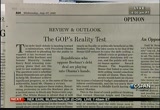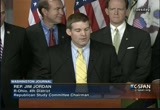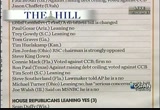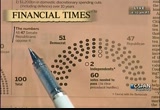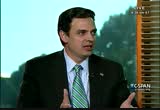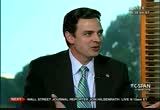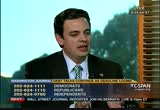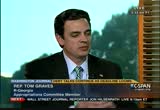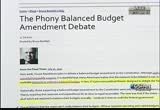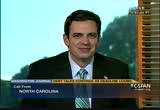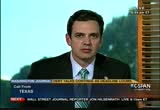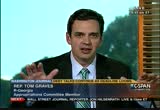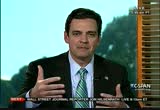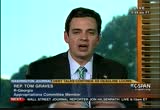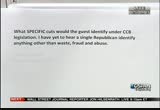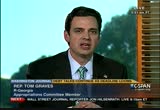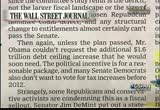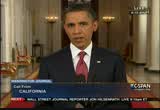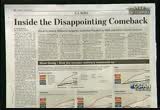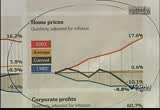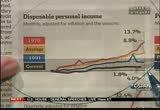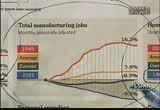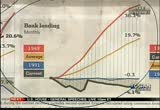tv Washington Journal CSPAN July 27, 2011 7:00am-10:00am EDT
7:00 am
7:01 am
7:02 am
7:03 am
a republican in taxes, you are first. what do you think? carol? caller: i am tired of the blackmail and speaking with the orchid ton. i am tired of democrats in getting it on national television and lying through their teeth and i want the republicans to hold fast and hold firm. host: that is carol, a republican in texas. here is what jim jordan had to say. he was at a news conference in this picture. the leader of the republican study committee opposes the ban air plan. here's what he had to say in a news conference yesterday.
7:04 am
>> we appreciate his hard work to keep tax increases out of the plant, but it is less than what we're currently at. we advocated more. we advocated more in the plan they the house passed paired we have a concern about the idea that a 12-member commission, six democrats and one republican could decide to raise taxes and you could not keep that off the floor. so there are real problems with this plan. most importantly, we actually think the plan that has been drafted, put in bill form, been debated, then passed by congress, been supported in a bipartisan problem -- way, the one that the american people support. we like that plan much better. that is why we support it. host: speaker boehner was out in front of the cameras out touting his plan. the cbo came out and said it does not save as much as the
7:05 am
speaker originally thought. he said he would quickly write the bill to come up with that $1.2 trillion. >> we have a bill that is a reasonable approach, negotiated with the senior leadership, there really is common sense. -- negotiated with the senate leadership, that is really common sense. it provides the best effort to get a balanced budget amendment enacted in the constitution. it is reasonable, it is responsible, it can pass the house, and it can pass the senate. i hope the present will consider signing this into law. host: "the help" breaks down the road. -- breaks down the vote.
7:06 am
as we go to the next phone call, i want to show you the break down as far as "the hill" says. we will talk to kant, a republican in florida. caller: i appreciate this. this is about the deficit. what i am saying is that we cannot fix the deficit by taxing. we need a second income. if you have a credit card, you would get a second job. my suggestion is a national lottery. they have won back in jackson's time. you could not win more than $1
7:07 am
million. what you would have is a $10 quick pick for the post office. you could have a machine that would print $10 tickets. there thousands of post offices across the country. you have a $10 ticket, 50 cents would go to the foes -- to the post office to help get them out of red. the other 50 cents would be to other programs. $4.50 of that would go to pay off the deficit, and the $4.50 final would go to the prize. host: republicans only for the first 45 minutes of "washington journal." johnny, you are on the air. caller: i am a republican. i tell you, the past 30 years i
7:08 am
have seen a lot of changes in this party. it is frightening. to think that the intern on the middle-class the way that they have done. all of this anti-work policy going on in wisconsin and ohio, that is the backbone of this country. if you ask me, it seems like they are purposely doing it for some reason. i do not know why. i cannot figure out why. but everything that comes out of their mouth is sideways. the country is being blinded by it, 90% of the republican party exclusively gives their news from fox. fox is brainwashing these people into believing that their agenda is the truth. over in england, you can see perfectly well what fox's to agenda is. host: do you think that your
7:09 am
lawmakers should vote in the house for the speaker's plan? caller: absolutely not. they should not even be voting on the debt ceiling. obama should clear everybody else and use the 14th amendment. it is obviously there were situations just like this. host: let's go to dan in texas. caller: it seems to me that all this bickering could at least be minimized if both parties would begin to enumerate cuts that they can all agree upon. for me, i think a good place to start would be wic. stock talk about a wasteful program. why should we continue to subsidize that gestation of millions of kids who will only grow to adulthood to a given project to occupy a place in our prison system? we're constantly awash in statistics.
7:10 am
7:11 am
speaker boehner's plan? caller: i would vote against it, but i would begin with cut, cap, and trade. it is the only one that has things large enough to do the necessary economic changes. this is a half step solution, and we already have a plan that has been approved by one house. it seems working from there would be more appropriate. host: we showed you the republicans who have come against -- come out against the speaker's plan. hear those who planned to vote yes. are still unclear. caller: of asked for my congressman to support the speaker's plan. i also think that there is one other element that has not been thought about.
7:12 am
if the national economy would grow, then i think that deficit -- the debt ceiling could be raised. but after that, i don't think that it should be without the economy growing. host: let's go to new york. jane, what is the name of your town? caller: i am a first-time caller and i think we need to raise the debt ceiling because the idea have -- i have is to save on finances. i think we should start with housing. we should ask people who are seniors or on social services, we could cut expenditures, housing is better than medical expenditures. i think that people can -- we
7:13 am
can go with grease company and the golden girls, we could have tax incentives to have seniors live with their adult children and make it economically feasible. housing is a huge when people have company. they eat better meals, they are healthier, and they require fewer doctor visits. i think that is the way to go. i think a small apartment for one senior can cost $3,000 a month by the time you throw in meals on wheels and eight support and their support and physical therapy support and occupational therapy support. host: i think we got your point. we are collecting what lawmakers as saying on this. -- are saying on this.
7:14 am
jeff blake to we did this. -- flake tweeted this. we are also collecting your messages and having this conversation on our facebook page. you can post your comments there. you can also send us a tweaked at twitter. and we will read some of those on the air as well. let's go to charles in columbus. caller: i am a republican and outrage the way that our lawmakers are handling the situation. we need to have a discussion about avoiding default. some of our lawmakers have suggested that it is ok for our government to default on its credit obligations. number two, we need to reduce spending. government spending, first we need to deal with the fall.
7:15 am
and i have not heard anything to suggest jobs. ohio has one of the highest unemployment rates. i have not heard an adequate solution about what we are going to do about that. host: let me ask you, this is the "new york post," and there is a abc poll they're showing that when people are not willing enough to compromise, republican leaders, 77% and 58% say that it is the president. who'll be responsible if the deal on the debt limit is not reached? 42% say republicans and 36% say the president. 19% say both. you think that is accurate? caller: unfortunately i would have to say yes. especially some of the rhetoric i hear from our freshman congressman.
7:16 am
it is surprising, it is appalling, i cannot believe that we are having this conversation when we are up against national the fall. we are charging that credit cards and then refusing to take responsibility for paying. host: let's hear from chri arissa in north carolina. i think that pushed the wrong button. in the meantime, let me show you more from the "york post." the credit region -- the credit rating agencies and what they may say.
7:17 am
7:18 am
the republicans are going to go with a bill that requires less funding than intended. they're going to protect rates for the rich, including bill gates who wants to pay more taxes. this goes on every year. speaker boehner has proposed those cuts when harry reid proposed more. something is wrong here. they were sent into office to cut spending. let's not worry about tax rates. let's cut spending. that is what they do not seem to get. boehner and mitch mcconnell are there for bill gates only. host: you say no on the boehner proposal. caller: from what i have heard, the spending cuts are not deep enough. host: but the "wall street
7:19 am
journal" editorial says that it is not perfect but it is the best plan out there. if they do not vote for it, they will be handing the victory to the president. do you agree? caller: i do not agree. i think the cuts are not deep enough. the main concern of the republican party is to save bill gates' tax break. it should not be that way. let's look out for the middle class. host: another tweet from a congressman. james in freeport, texas. caller: on a longshoreman. i have been hurt on my job and i was wondering, this company and these insurance companies, when i get hurt and i have to go on
7:20 am
disability, they do not pick up the premium on my insurance? i have been working there for 20 years and in good health and then i get hurt on the job. this falls back on the ssi and social security income. and why these companies are not responsible to pick up this premium on my insurance. host: james, tie this to the debt ceiling debate. caller: i cannot hardly hear you. host: we will leave it there. speaking of jobs, this is the business section of the "new york times." the effects of lower in the federal government credit rating to aa from aaa could be measured in the billions of dollars of interest borrowing.
7:21 am
7:22 am
ratings. that's good to scott in maryland. caller: i am hoping my congressman will vote against the better plan. when we're talking about shared sacrifice, we should all share the sacrifice. [unintelligible] host: i apologize. you're breaking up and it was difficult to hear them. we move on to jeff and honolulu. caller: first i want to say that every day becomes more ridiculous talking about japan, we are directly affected by that. we are really hurting down here. i don't think you speak about us and now. we are in the beach in the sun but it is not all about the beach in the sun. when you live here, you are
7:23 am
working day to day just like everywhere. i i think at the end of that day, you'll see a version of this boehner plan, and it is a sacrifice on both sides. the guy before said that it should be deeper. his going to be a version of that. why are you speaking more about how much money we are actually bringing in, act -- how much we actually know? everyone knows it is the worst kept secret. we are not going to lose our aaa rating. c-span is supposed to be the ultimate in the truth. we are not getting that argument either. where are the numbers that we hear about from fox news and places where we say we have enough money to pay the bill, even if it is not a perfect plan? host: first of all, on the
7:24 am
credit rating, we are reading to you will what is in the papers. it is not an endorsement by c- span but we're letting you know what washington is reading. this is what they are reporting on the aaa rating. as far as how the bills will get paid on august 3, that number keeps to keep changing but there is an issue in the papers you might be interested in. it was heavily reported about in the papers yesterday. this is the "washington post." there are also stories on the front page of the "washington times" about how much money is coming into the treasury on august 3, and how much money we would have to continue to pay our debt obligations as well as our bills.
7:25 am
wyoming, ken, good morning. caller: i think that we should raise the debt ceiling. the reason that i do is i do not believe that this country should go into default. anybody who thinks that it would not go into default needs to wake up. host: what did you think about the speaker's plan? caller: i do not believe that my congressperson should disgrace this country by letting it go into default. i also think that the people that have enjoyed tremendous growth in the past 15 to 20 years can and should help to pay
7:26 am
for this debt. along with everyone else. i do not agree with everything that mr. obama is talking about. but i do believe there should be a shared sacrifice here. and an agreement that is --i think maybe if there -- if they are serious about this, the first people that should not get paychecks should be the people that caused this, the people in congress. host: we are talking to republicans only this morning. here are a couple of tweets.
7:27 am
wichita, kan., you are next. caller: i am a young person. i am 27 years old, got married young, and i have young children. my wife and i both have degrees. we would fall into that gap of people who make under $20,000 a year. we work very hard to get by. i am half cuban and i grew up glad to be a republican. the hard part for me right now with what i am hearing in other callers this morning, even someone saying that they would go with boehner's plan, it seems like the republicans are not taking this whole thing seriously. in the background, you have a group of tea partyers, doing a
7:28 am
lot of the things they're on paul says about the budget and government spending out of control. things are very true, and it does cost a lot of confusion within the republican party on what to do. but just the seriousness of the situation, i feel, and for the first time as an american, i am concerned about the type of country we're going to leave to the next generation, especially my four-year-old and my daughter. as a gold goes to $1,600 an ounce, and when i graduated from high school, it was $250. i heard someone say that during the jimmy carter administration, when it was really bad, gold was maybe $600 an ounce. there are all of these signs out there that we are teetering on this pendulum. the republican party --
7:29 am
boehner's plan, it does not seem that it is getting to a solution. it seems to be prolonging the problem. host: the "wall street journal" has the story about the post office closing times. it is struggling with that deficit of up to $9 billion this year. in other news, many of you have been following this story. that is the "washington post."
7:30 am
also, the "oregonian" has this picture of david wu who says he will resign. the paper notes, one democrat is considering a special selection -- election. there will nominate their candidates a party convention. but he could schedule primaries in which -- mobile, alabama, ruth, we're talking to republicans only this morning. caller: i am concerned about the distortion of the information that we get. for instance, the democrat side wanted a clean debt ceiling law
7:31 am
raised. and in argument of that, they talk about about how many presidents before have had the debt ceiling raised. but they do not talk about the amount. this is between $2 trillion and $3 trillion, and none of the other debt ceilings had asked for nearly that much. give us the balanced view on it. host: here is the "miami herald," route. -- ruth. you might be interested in this. this talks about how many times presidents have had the debt ceiling raised. we will go to michigan. greg is joining us. republicans only. should your lawmakers spoke --
7:32 am
vote for speaker boehner's plan? caller: i am for the john boehner plan for one specific reason. they should do our review in six months. i am a businessman and a restaurant. all of like to see that ticker clock that you showed earlier. debt going up. if we could get that thing to stop or reverse, how would no longer -- i have no problem paying taxes. the problem are really have is that i do not understand why the federal employees do not pay into social security. it would help the national debt out. host: where are you getting that information? caller: the federal employees do not pay social security. federal employees do not pay social security. host: ok, where did you hear that? caller: i have read it over and over and over again.
7:33 am
they have never paid into social security out of their paychecks. host: because they pay into a pension? caller: because they pay into a pension. but i do not understand it, the federal government works for us. we do not work for them. why do we get social security and they get a full pension with full benefits at the end? host: if you wondering if the two sides are continuing to talk while alternative proposals are being put forward, the "wise tempos" has this. -- the "washington post" has this.
7:34 am
7:35 am
north carolina, what you think about the speaker's plan? joe, i did not push a button. can you start over? are you there? you are on the air. caller: i apologize. i do not i am not, supporting this plan. i think that president obama is all for shared sacrifice. let's say to the 51% of americans that do not pay federal income taxes, let's say we tax them. we do that and then i will like the plan. host: did you become involved in this debate? have you called your lawmaker? caller: yes, i have. i called and i e-mailed senator hagen. host: what kind of response did you get. caller: she is a liberal. she is going with obama. she is obama's lapdog. also, i blame the elderly on all
7:36 am
of this. so social security is not intended for retirement. it is to augment act -- augment or subsidize your retirement. you have some in the elderly relying on social security as a retirement pension. so the elderly, it is your fault. host: we will leave it there. lamar alexander tweeted in -- on the phone calls made to capitol here, here is a story from "usa today."
7:37 am
during the height -- savannah, ga., melanie. caller: good morning. i am very unimpressed with the speaker's plan. i think it yields too much in terms of allowing the ceiling to increase and spending cuts may not be all that we hoped. i would like to see not only a balanced budget amendment go through, which is probably hopeless, but republicans hold strong and say no more spending, period.
7:38 am
what is very aggravating to me is that all the media helps, even including talk radio, with the very few exceptions, failed to point out that we will not go into default on august 3. we have plenty of money to cover the bills. it is just one to get harder for us to borrow money. that is good because we should not borrow any more money. we need to live within our means. host: you do not believe the reports that say that we can pay our bills on august 3, but after that, it will continue to be difficult. you do not believe that? caller: from what i understand, we have something in the order of $200 billion coming in each month. and all of our expenses do not quite reach that number. host: where did you see those numbers? caller: i am hearing that from -- i have heard that on fox
7:39 am
news, actually heard it on some talk radio shows. i believe, one person quoted it as coming from the "washington post," something i thought was surprising. host: we had on our show that by policy policy -- a bipartisan policy group, and they have been crunching the numbers. there is a front-page story in the "washington post" about how many bills we pay and the amount if you are interested in that. on the debt talks, dick durbin was on abc and said that breaking the debt stalemate is possible if republicans dropped "my way or the highway" thinking.
7:40 am
then s that is an e-mail from one of our views. we will go to christopher and baltimore, maryland. caller: yes, hello. host: we are listening. caller: thank you for taking my call. i'd like to say that the boehner plan is a positive step. it cuts taxes. i am sorry, it cuts spending drastically, but i do not think drastically enough. that is why i do not really -- i cannot really supportive. you have to understand that there is a really no plan of getting us out of this debt
7:41 am
issue. it will happen again in two more years. that is an issue that has not been addressed. host: a couple of other articles of note for you. we told you about one program on the show many times. we talked about it yesterday as well. when the house oversight and government reform committee at a hearing on that. here is a headline about it. we covered that, the 02 c- span.org, go to our video library. there is a picture in the "washington times" of the illinois democrat in front of the white house yesterday by rawlings support of the dream act. it was also arrested while protesting at the white house in may 2010. and in many of you have been following the story of elizabeth warren and wondering whether she would be nominated to become
7:42 am
chief of the consumer bureau. top deputy to replace her. that is the headline in the "washington post." that person takes over day-to- day operations on august 1. there is speculation on whether she will run for the senate in massachusetts. back to the debt debate. randall in california, what you think of the speaker's plan? sugar lawmaker voted for it? caller: i like the speaker's plan, but the president and
7:43 am
every democrat i have seen are clueless. if they take more money from the employers, they will lay people off. the union electricians in california have not worked in 20 months thanks to obama. he is a disaster. he needs to take an host: economics: the "washington times" has this story. -- he needs to take an economic course. host: last call. bop in washington, what you think about the speaker's plan? i think we lost bob. we will continue this conversation about the debt talks. coming up next, we will talk to earl blumenauer and then we will turn to tom graves, also a member of congress, the republican of georgia. we will be right back. ♪
7:44 am
>> like any business, the post office is subject to business trends. we've seen a downturn in our most profitable category, first- class mail, which accounts for 50% of our revenue. >> that was the postmaster talking in may about the mail. he announced plans this week to close 30,000 -- many branches
7:45 am
across the country pre learn more at the c-span video library. search, clip, watch, and share. it is what you want, when you want. >> this weekend on american history tv on c-span3, the national portrait gallery celebrates ronald reagan's 100 per day through their exhibit. dennis stanford university professor on the great migration when many african americans moved out of the south. and then in charleston, south carolina, we look at that city's history. including the role of the city in the revolution. get the complete schedule at c- span.org/history. >> you are watching c-span, bringing you politics and public affairs. every morning it is "washington journal," our live call-in program about the news of the day, connecting you with elected officials, policymakers, and journalists. weekdays, watch live coverage of the u.s. house, and on weeknights, congressional hearings and policy forums.
7:46 am
also supreme court oral arguments. on the weekends, you can see our signature interview programs. on saturdays, "the communicators," and on sundays, "newsmakers," "q&a," and prime minister's questions from the british house of commons. you can also watch our programming any time at c-span.org, and it is all searchable at our c-span video library. c-span -- washington your way, a public service created by america's cable companies. >> "washington journal" continues. host: we're back with congressman earl blumenauer, a democrat of oregon, a member of the budget committee. that talks continue to stall here. this is the "new york times" editorial. one plan is bad and the other is awful.
7:47 am
low-income individuals will bear more of the burden. it relieves on -- pressure on republicans to agree to tax increases in future negotiations. guest: i agree absolutely. and that is not the opinion of house democrats. i think house democrats feel strongly that it should be a balanced approach. what we did on the budget committee, there is a willingness to deal with changing the way that we do business on everything from health care to defense to agricultural subsidies. but there should be some modest adjustments in the tax system so that those who have benefited the most are able to help balance the scales. ultimately, that will happen. sadly, it may not be what happens in the next few months, but we're going to try to push in that direction. host: would you include entitlement reform?
7:48 am
guest: i personally think that what we should be doing in terms of medicare is accelerate the reforms that we put in the affordable care act. the independent cbo has scored over $1 trillion in savings, but if we strengthen these predictions, we can provide better care for less cuts. i come from a part of the country where the spending as much less than there is and other parts of the country. study after study shows that we provide better health care. we'd do this. -- we know how to do this. this is not something that we are unable to do. if we have the political will to do stupid things, hopefully we could do positive things like that. host: the president came out and said that he was willing to put medicare and medicaid on the table. you say, house democrats believe that there need to be more sacrifices on the other side. guest: frankly, i do not think
7:49 am
that that is sacrifice, to go back to the tax levels that we had just a few years ago under the clinton administration. the economy was rocketing. and i hear constantly from friends of mine who would be paying more that they do not feel like this is some and you sacrifice. this is simply balancing the scales. host: the question was, do you think that the president and now what senate majority leader harry reid's proposal, that you and the majority of democrats are not being represented in what is being put forward? guest: i want to say that we have been consistent. speaker pelosi -- former speaker pelosi and chris van hollen from our budget committee, jim clyburn, our people have been clear that they support what the majority of the american public wants, which is a balanced approach that deals with both revenues and spending adjustments.
7:50 am
i personally think that fixing the social security issue to have long-term stability is one of the easiest things. i think involving the public with that, but that is not part of what the deficit problem is. it did not create the deficit problem. it is not going to solve the deficit problem. mixing vat in with this confuses the issue. host: it speaker leader -- if the leader reid and speaker boehner can come up with something like no tax increases as well as not cutting social security, medicare, and medicaid, would you vote yes? guest: i want to see it. part of the problem is that we are locked into an ongoing circus here on capitol hill. there was a big issue at the end of the last congress that threatened a meltdown over whether or not we were going to extend the package of tax cuts.
7:51 am
then we have the cr, threatening to shut down of the government. now we are having a high-stakes game of chicken that could have significant implications for the global economy as well as devastation for what we face to going forward. and then you know what? we will be right back with that with the budget, not once but twice, before the election. most in the house want to see something that is more sustainable and allows us to get back to the business of helping all americans get back to work, rebuilding the country, and dealing with long-term solutions rather than short-term fixes to deal with theoretical issues with the budget. host: to be clear, if the reid proposal could come before the house, would you vote for it? guest: i have not seen it. i had a dinner with a friend of
7:52 am
mine in the senate last night who says that they are interested in the details. they have not seen the details yet. i am not going to commit to something that no one i know has seen. and had a chance to analyze. that is what is so stupid about this artificial bair and playing fiscal chicken. we are dealing with things that can have long-term implications and there is not time to do it right and for people to know what is going on, apropos with what happened with the speaker's embarrassment, handing the yankees proposal because he did not know what was in it. host: general din seat testified yesterday, and called the defense cuts a very high risk.
7:53 am
guest: we have to put this into perspective. we cannot keep doing what we're doing in the department of defense, where spending is going up faster than the rate of inflation. it is not just fancy equipment, how many aircraft carriers do we need when there is no one else in the world close to us? but the congress and the president have to deal with some fundamental changes in mission. why 65 years after the end of world war ii and 22 years after the collapse of the soviet union are we spending billions for troops in europe? congress and the president need to send that message and i am quite confident that the department of defense can respond. host: virginia beach, va., you are the first caller. caller: i always keep an eye on c-span dairy and i know that
7:54 am
when -- you are one of my favorites in the house. there was a couple of things i wanted to mention about the representative boehner plan because they were asking that question. i am firmly against it. on a whole host of reasons, mainly because it does not add anything -- ask anything from those who have the most in this country. but every once in awhile, when you let anybody, republican or democrat, get off as talking points and let them speak for a while, they say they're true mind. in the past three calls, i've had one republican say at the very end, when they were talking, they said the government should stop spending period. that says everything right there, when you have someone on the republican line saying all
7:55 am
spending should stop. host: let's get the congressman's thoughts. guest: in the background, we have the capital where people on the health-care debate, tea party enthusiasts, talking about keeping government's hands off of their medicare. completely oblivious to the fact that that is a government, single payer system like they have in canada for our senior citizens. people lose track of how much they rely on the portion of our economy and our everyday life provided by government, whether unemployment insurance, social security, medicare, infrastructure, environmental protection, food safety -- these are vital functions that we rely upon, that business relies upon, and we need to make sure that we do a good job of providing those services. and that is part of what is at stake in these discussions.
7:56 am
host: ken tweets in this. guest: that is a very interesting issue. in going back and looking at it and what some of the supreme court decisions subsequent to that -- it would appear that the president has the authority, as i think former president clinton said, to just pay the bills. to honor the obligations. this was spending that was authorized by congress, after all. rather than putting the president into the box to figure out which bills he is going to pay and which he is going tonight, there is a strong argument to be made that he could go ahead and do this. but i think that would be wrong. i think congress should be grown-ups and do what we did at least seven times for george bush, increase the debt limit, which is artificial, anyway. i think we are the only country
7:57 am
in the world except denmark that goes through this trade. we ought to get real about cutting spending, if that is what we're going to do. we have budgets in front of us. let's do it there rather than pretend we're not going to pay our bills or a lot of minority opinion to hold the government hostage. that's just wrong. host: you would do away with the statute all together. guest: i have legislation drafted to abolish it. it serves no purpose. if people want to reduce our debt, they should step forward and reduced spending. host: any republican support in that? guest: i do not know. i think some in their heart of hearts would. but when so many of my republican colleagues are being cowed into signing grover norquist's silly pledge that regardless of upheaval and change in the population that
7:58 am
we're never going to increase taxes, you get a sense that it might be hard for them. i sincerely believe that a number of them think that that it would be a good idea. the balanced budget amendment, as it has been proposed, is completely unrealistic. they've would hold government spending to 18% of the gross domestic product. remember, ronald reagan never proposed a budget that was less than 21%. our story the center -- storied senator was the one vote against the balanced budget amendment not as grotesque as this one. and he was clear as chair of the appropriations committee, this is not just a theoretical, seven years from now, maybe. come work on the appropriations committee and we will talk about this now. many people who advances are
7:59 am
themselves seeking higher spending. host: another tweet. guest: it certainly raises doubts in the minds of people up and to this minute to have been lending as vast sums of money at very low interest rates, about half the interest rate that we had when clinton was president. you had this story just before i came on that show we are already having consequences, the dollar falling against other currencies, short-term interest rates driven up, and people are seeking insurance. the more doubt there is about the united states, the less likely that they are going to be our financial partners. the u.s. currency is no longer the reserve currency, which will have added costs for american business and consumers, perhaps. host: let's go to ohio.
8:00 am
bill, are you with this? you are on the air with the congressman. go ahead with your comment. caller: i think we should take steps to impeach obama. host: why is that? caller: he is nothing but a socialist dictator. host: why do you believe that? you know what? we're having a little trouble communicating with you. i will leave it at that and we will go to an independent in oklahoma. guest: i do not agree. host: i did not think you would. caller: good morning. for one thing, i was a democrat for 35 years and now i am an independent. i kind of agree that this government does need a balanced budget amendment.
8:01 am
you cannot seem to stop spending. guest: what is it that you think we ought to stop spending on? what are your area's? caller: for one, i am disabled. i became disabled on the job and had medical insurance. when obamacare past, i was dumped onto medicare, -- guest: no, you were not. it's not into effect until 2014. you did not get dumped on medicare because of the health care reform. it is not in effect yet. companies will say what they are going to say, but it is not into full effect until 2014. you cannot blame that on the health care reform. caller: there is another issue, medicare.
8:02 am
you said medicare is going broke. guest: i did not. caller: medicare will go broke within a certain number of years away it is, ok. why is our government borrowing money from the fund and does not pay it back? also, when we borrow money from other countries, we just pay the interest. why don't we pay on the principle? host: you are saying many -- you are saying money is taken from the medicare trust fund. caller: correct. guest: those are things that would increase spending. he is a little confused. if he wants to reduce spending, but he wants to have the government pay more, for example, to pay down the principle on our debts, a salary that to reduce the debt level, he needs to look at the -- on our debts and accelerate that to
8:03 am
reduce the debt level, he needs to look at the republican plan that would require increasing the debt ceiling by over $8 trillion in the next 10 years. you people need to look at what is being proposed. i happen to agree with the caller that there are things we can do with medicare. i mentioned that part of what the health care reform, which is being slowly implemented would save $1 trillion. i think there's more we can do to improve medicare spending. i come from a metropolitan area, portland, where we spend less than the national average. all the studies show we provide better quality care. there are things we can do right now to report -- there are things we can do to reward value. these are not partisan. there's bipartisan agreement on what needs to happen.
8:04 am
we can save more while improving the quality. host: we go on to susan, a democrat in new york. go ahead. caller: this is my first time i ever got on in 10 years. i am thrilled. thank you. you had another democratic senator on from long island, i believe, the other day. i would like to know why the tea party is holding the rest of the country hostage. why is everyone so afraid of tea party? they seem to be in charge. there may be statements about death panels during the health- care bill and frankly, it there austerity programs will be death panels. i will not have medicare. they say, "keep your government hands off my medicare" which
8:05 am
made me laugh. as a democrat, i'm doing everything i can. how does the democratic party get the real message out? i realize everybody is working their butts off and two jobs and what not. i see so much ignorance. it is hard to get through all of that. the tea party has just exacerbated and gone with whatever fears there are. host: by the way, the tea party express is holding a rally in washington day, asking their supporters to hold the line and not raise the debt ceiling. that is at noon in washington. ofst: that's an illustration how some people who are well intended are out of touch. the debt ceiling would have to be increased under even the most draconian republican proposal. this is a position that is
8:06 am
disconnected from reality. i think the reason they have been able to exert some influence is because, in part, they are a nice media story, but they have been able to exercise some influence within the republican party. my good friend, mike castle, who should be a united states senator today, was taken out by the tea party. the woman who had to somehow convince people she was not a witch -- and hatch is likely to not come back. they have a lot of influence in a narrow spectrum of the republican party, who, unfortunately, have a great deal of impact. ronald reagan could not be elected because of the tea party today. remember, he raised taxes. he was not someone who was going to be anti-government. he compromised. he raised the the debt ceiling.
8:07 am
ronald reagan would not be acceptable. he never proposed a budget that was less than 21% of the gross domestic product. this is not good for the republican party. host: rachel tweets in this -- where is the democratic alternative? guest: you saw the house democratic alternative that came forward that would have brought us into principal balance sooner. we are more than willing to deal with things from defense spending to agricultural reform. we are the ones that produced the greatest change in savings in medicare in 40 years in terms of changing how it does business and being able to redirect some of the excess spending, for example, in medicare advantage and to be able to focus it on the ones
8:08 am
that were more effective to save $1 trillion. to suggest it's not effective is simply not accurate. we have been able to produce some things that have had results. it's interesting that my republican friend took all the savings that we created that they actually campaigned against in the last election and put that into their budget to achieve more savings and took credit for it. host: let's hear from a republican collar, tom in -- let's hear from the republican, tom in fort lauderdale. caller: one of my frustrations is they do not come with any real numbers to attach to what they are talking about. they do not show how what they want gets us to where we want to go in numbers. you know, the republicans come
8:09 am
in with numbers and graphs. they show us where we end up. the democrats are content to just argue about philosophy and try to cast republicans as sinister people who want to take away from needy people. the republicans do not care about poor people -- give me a break. get responsible about the way you approach this problem. guest: i would invite him to look at the materials we developed for the democrats on the house budget committee. there are numbers, charts, and graphs. what i find ironic about the numbers, charts, and graphs from my republican friends is that it is all theoretical. remember, one week ago, they proposed dramatic reductions in the future. you know, the 18% budget cap. this week, when one of the republican study groups proposed
8:10 am
that exact approach to the budget that is being debated on the floor, it was rejected by the republicans. they want to talk about it in theory, but when it comes to actually implementing draconian cuts to the environment, to help and protection, then they go all wobbly. with all due respect, i think this is hypocrisy. they had a chance. they ran away from what they proposed. it is the same thing with the balanced budget amendment. instead of fighting it out now and showing the american public what their vision is, taking us back to spending levels of 1966, put it into effect, and take the consequences, which will have a much greater impact on the poor and middle income people than it will have on the very wealthy people.
8:11 am
they run away with that when faced with the reality. when the public sees what is proposed, it's not something they will embrace. host: james disagrees with you. he says -- guest: i think it depends on whether or not people know what's going on with it. if people really think we can take spending levels back to lower than anything ronald reagan ever proposed, have at it. my morning run was with a major government relations person from a business this morning, somebody i've known for a long time from oregon and he is shaking his head about this. they are in an unreal world where they're talking about the radical things that sound right, but when you put it into effect -- talking about the radical
8:12 am
things that sound right, but when you put into effect, do people want those cuts? sewer and water, assistance for students, much more draconian cuts in medicare and medicaid. that's not where the american public is. the balanced budget amendment is a sound bite that would have a very devastating effects, if it or put into effect, and like i said, yesterday, the republicans did not want to put into effect when one of the people offered it up. host: we will go to the democratic line. john is watching us in rhode island. caller: nice to be talking with you. congressman, i'm one of these people who believes the united states can no longer be all things to all people all over the world. i think congress and the president ought to get our troops the heck out of that
8:13 am
desert and bring them home. that would probably save us $1 trillion. to repeal the bush tax cuts would save us another $1 trillion. therefore, there would be no deficit if we were to do those two simple things. all this talk about globalization and the united states government has been promoting, what they did not tell the american people is that the middle class would pay the price for globalization. the middle class in this country has been absolutely devastated. people are out of work. the backbone of this country was the middle class. let me just say one thing about social security. social security is one of the most successful programs the united states government has ever invented. every time the united states government wants to borrow money, it takes it from social security. people should not be bad mouthing social security.
8:14 am
guest: thank you. i agree with your premise. it does not have to be this hard. the fact that we fought two unfunded wars under president bush and the republicans, the fact that we had a medicare prescription drug entitlement that was passed without paying for it or without negotiating more favorable terms from the drug industry that stood to profit from it -- we make this much harder than it needs to be. one of the reasons the deficit went up $400 billion this year is because we pass the tax cuts last year, which have really not shocked the economy back alive. we have had choices in military, agriculture, health care, reforming the tax system that can put us on a path to stability. your caller is right that social
8:15 am
security did not cause the problem. in fact, social security surpluses have cushioned the impact. we should separate this out. we should deal with the long- term issues of social security separately. in the meantime, we ought to be more honest about making the changes to the way we do business, which will change those cost curves and put us on a sustainable path. host: tony is next on the line for republicans. guest: good morning. caller: thank you for taking my call. i am not in line with the man from rhode island. he has got it right. i do not believe that you should spend -- i do not believe american people should spend one dime or the government should take one dime from americans until both parties get serious enough to stop the foreign aid,
8:16 am
as well as the legal aliens in this country -- as well as the illegal aliens in this country. guest: look out the window and all the things that would grind to a halt. that's the sort of reckless rhetoric that's ok for a caller to use, but unfortunately there are people in the political process that used that sort of reckless, terry. foreign aid is actually -- the american public, when asked how much they would have the government spend on foreign aid, they routinely suggested a level that's much higher than what we actually spend baby would be far better off spending strategically to help people -- then we actually spend. we would be far better off spending strategically to help people rather than being faced
8:17 am
with meltdowns of governments, failed states, problems with starvation and wars, if the united states actually spent a little more on foreign assistance. just a little bit more than we spend now and less on military assistance and scale back what we are doing with foreign operations. the world would be a better place and the tax players -- and the taxpayers would have more relief. host: this is just breaking. pawlenty says the plan does not go far enough. your reaction? guest: this is his last gasp of trying to move ahead in the iowa straw vote. this is completely at odds with
8:18 am
pawlenty the governor and what he understood and supported. you are going to see republican extreme statements as people -- the extreme tea party wing is very influential in an ever declining number of people who comprise the republican base. i'm not surprised by that. we are going to hear more. bachmann, who i worked with -- i cannot say i worked with her because she did not really worked in congress. she sort of a media star, but i do not know of anything she has done legislatively. of course, flying in the face of everything the republicans have done. you will see people unhinged
8:19 am
from reality. unfortunately, some people will believe that and it will distort the discussion. host: in the meantime, from the ap wire -- guest: this is why this is lunacy that we are doing this with the debt ceiling right now. will the government have enough money to pay bills for another day or two or 10? keep in mind, these are economists who say the government might have money to pay the bills for a week or two. if you are somebody who relies on the government honoring its obligations for the checks that come out, whether it is social security or payment for services, but that's a pretty thin read. if you are people who are making decisions about investing hundreds of billions of dollars in the united states treasurys,
8:20 am
which we are going to need under any circumstance, the notion that people are going to have to guess how much money there is and whether it will be one week or two is simply unacceptable. this is playing fiscal russian roulette. nobody knows the consequences. there are already costs being paid. we should stop this and get on with dealing with issues that actually cut the budget, rather than playing games. host: about your colleague, david wu, he is going to resign. guest: wu was kind of melting down last year in the best republican year in decades, if he could still win by 11%, i think we're in very good shape. there are probably two or three
8:21 am
people that i know well that are already working on the democratic side. i will bet money that we will have not just a strong democratic victory there, but we are going to have somebody who can really help carry the load. host: are they state and local people? guest: absolutely. there are people that are well known in oregon, established political figures, and they will wage a spirited race. one of them will represent congress before the year is out. host: thank you. guest: my pleasure. thank you. host: in our last hour of the "washington journal" -- we will turn our attention to the economic rebound and the factors that have caused many to draw parallels to the 1980's. next, we will talk to representative tom graves of georgia. >> more reaction this morning to the debt negotiations on capitol hill. dick durbin, in remarks earlier
8:22 am
on nbc, said breaking the stalemate is still possible if house republicans drop "my way or the highway" thinking. he went on to say that he understands frustration with congress and concedes that people must be thinking they need another team on the field. the chairman of the house homeland security committee, peter king, says more than 40 americans have been recruited by al-qaeda linked terrorists in somali and have gone there to fight. testimony will be offered on the subject this morning at the third congressional hearing on muslim radicalization. you can hear that later on c- span radio. an update on libya from the united kingdom. william hague, the foreign secretary, said the country officially recognizes the main opposition group as the legitimate government of libya and they are expelling all diplomats from gaddafi's regime
8:23 am
and is unfreezing assets to help the national transitional council, which is recognized as the sole legitimate authority. those are some of the latest headlines on c-span radio. >> the postal service is subject to marketplace trends and we have seen a significant long- term decline in our most profitable product category, first-class mail, which accounts for 50% of our revenue. >> that was the postmaster general in maid testifying on the financial stability of the u.s. mail. this week, plans were announced to close 35 under branches across the country. learn more online at the c-span video library. it's what you want, when you want. >> every weekend, american history tv on c-span3.
8:24 am
48 hours of people and events telling the american story. what personal interviews about historic events on "oral histories." revisit key figures, battles, and events during the 150th anniversary of the civil war. visit college classrooms across the country. go behind the scenes at museums and historic sites on "american artifacts." and a look of the policies and legacies of past american presidents. get the complete schedule at c- span.org/history. >> "washington journal" continues. host: we want to welcome representative tom graves, republican of georgia. congressman, let's begin with the john boehner approach. you're against it. you say the house needs to go with the cap and balanced
8:25 am
approach. guest: i'm excited to be here. i've heard a lot of great things. it's the common-sense approach to how we get out of this debt crisis we are in as a country. we have got to cut spending now. we have got to cap the federal government in the future. ameritech gets that. -- america against that. it is the only plan that has passed the house and it has gotten bipartisan support in the senate. we do not have to wait until august 2. we could all go home to august recess and america would be on a better course. host: here are the details of the approach, which passed in the house. cut spending in fiscal year 2012 by $111 billion.
8:26 am
this is what "the wall street journal" editorial board says today about the boehner approach. they say is the gop's reality test. "if his plan or something close to it becomes law, democrats will have conceded more spending cuts than they thought possible and without getting the gop to raise taxes and without being able to blame republicans for a debt limit crack up or economic damage." guest: that is an interesting opinion. they are welcome to run for office and represent that you. the fact is, if we were to pass the plan that has been proposed,
8:27 am
we would still have $13.4 trillion in debt. only cuts $7 billion for next year. that means guys like me will be going back to the appropriations committee and spending more. right now, we're cutting $31 billion, according to the limits set in the house, and that would increase the amount. when i look at the long-term picture, we cannot, in my opinion, promise cuts 10 years from now if we cannot cut today. $100 billioncut today, how can we look at the american people and say we're going to cut trillions tomorrow? let's deal with it today. the only plan that has the support of republicans, democrats, the house -- cut, cap, and balance.
8:28 am
host: senate majority harry leet said the plan is dead on arrival. where is the compromise? >> is sitting on the table. all they have to do is vote to take it off the table and they can move on from there. host: what about the polls that show americans want some sort of compromise? and then you have this poll. guest: that is interesting. if you think about why we are where we are, it's both democrats and republicans. we know that. the last couple of years have ramped up. the president -- this is clearly
8:29 am
his debt crisis and his problem. he is the only member up here that's waiting on the debate but has yet to identify how he would solve it. he talks about all these deals, but where is it? where is it? the only one out there is from the conservatives in the house and that is cut, cap, and balance. host: you call it interesting and you called "the wall street journal" editorial board interesting as well. do those sorts of things that show you people are not with you on this -- do they just not influence you? guest: it is different today than previous years. a group of freshmen that have come in with a mandate from the american people -- host: and you are serving your second term to be clear. guest: you are right, but i came in in a spirit of the freshman class.
8:30 am
it is a group that says, let's deal with the big issues. let's solve the problems. we know washington always wants a deal, but america wants a solution. now it is a compromise mentality and i think you would have to agree that the compromise is what led us to the mess we're in right now. we cannot compromise our way out of this. let's make that tough decisions. let's do what american families have to do. we should not be exempt from making difficult decisions. host: are you against raising the debt ceiling across the board? guest: cut, cap, and balance with the condition upon the balanced budget being sent to the states. host: then you would approve it? guest: if the balanced budget amendment was sent to the states. in essence, we understand that if the american people have the opportunity to -- it is the last time the debt limit would
8:31 am
increase. host: what happens august 3 and after that if the debt ceiling is not raised? guest: i did that they moving date. a self-imposed date by the president and the treasury secretary. now we're hearing it beyond that potentially. the fact is that we have got to deal with it. i do not know why washington always wants to run up against a deadline. the president has known about this all year long and it could forecast it from the previous year, as well. i do not know why we would wait until august 2 in the first place. if you get to august 2, august 3, and we will operate as normal. you will probably hear scare tactics and fear mongering. medicare recipients should receive their benefits, if the president chooses to do that. i think you move into more of a
8:32 am
cash flow management that comes from the president and the treasury secretary. they're going to make decisions. do they want to continue funding epa at 1 under%, or do they want to fund a senior citizens -- continue funding epa at 100% or do they want to but senior citizens? host: if the debt ceiling is not raised and the credit rating agencies lowered our bond rating to aa, here is "the new york post" with what could happen to the average consumer.
8:33 am
host: how are you going to explain to your constituents that because the debt ceiling was not raised that they have to pay more out of their pockets? guest: it's not contingent on the debt ceiling being raised. both moody's and standard and poor's have not said "raise the debt ceiling or else." in fact, they have said, "raise the debt ceiling, but if you do not have a plan, it will still be downgraded." host: what about interest rates going up? guest: cut, cap, and balance is the only plan moody's and s&p have not been critical of and actually meets the criteria of what they say would put us on the right path.
8:34 am
a lot of those were hypothetical, as you say. a lot of people do not know. we cannot allow a lot of this to force us into making bad decisions today because it will impact the next generation. that's my own concern. i have three children. my son was with me a few months ago and he was listening to the debate. "dad, can you all not just fix this debt problem because i do not want to owe." the kids are starting to carry this burden. host: credit rating agencies will be on capitol hill today. we will have live coverage on c- span3. jerry, democrat in kansas city, missouri. good morning. you are on the air with representative tom graves. caller: my question is why the republicans do not want to offer
8:35 am
more revenue on the table. they always say there are 51% people who do not even pay taxes. the reason that 51 percent of us cannot pay taxes is because we cannot get jobs -- the reason that 51% of us cannot pay taxes is because we cannot get jobs. guest: revenue is code for raising taxes. we would certainly destroy even more jobs. jobs is the number one issue facing our issue. unfortunately, it is in the shadow of this debt discussion and debate we're having right now. i think you will see that we're proposing to move government out of the way. let's reduce the regulatory environment. let's reduce the taxing burden on businesses so that they have more access and more resources to employ more americans. when i look at my district, risktakers who want to expand their business.
8:36 am
when i asked them why they're not adding new employees or additional product lines, they say the uncertainty -- it's what the comment with. i would suggest that if we raise taxes on small businesses, on middle-class families, we will only destroy more jobs. the fact that unemployment is so high is a result of taxes being too high and the regulatory environment being too high. it has reached that tipping point, unfortunately. host: here is a tweet from a viewer. guest: i've been in a couple of different businesses. i have a landscape company in purchase in my 20s. i sold it about 10 years ago and transitioned into the real- estate market. i certainly have an understanding of the market and how difficult and challenging it
8:37 am
is. host: another tweet here. on top of that, bruce bartlett wrote in a blog -- "one problem is the states do not really balance their budgets. only the operating budget is required to be balanced. by contrast, the federal budget lumps together operating and capital expenses." guest: a lot of folks point out that some states operate in a good environment, in a balanced budget environment. i can only speak in my state,
8:38 am
and the state of georgia, a balanced budget state. the state of georgia has done a phenomenal job at not raising taxes and cutting spending and they have cut 23% of the budget in order to keep their spending in line with the revenue that comes into the state of georgia without raising revenue. if you'll look at a lot of economic statistics, georgia is at the top of list when you look at the business environment in our country. it's a state in which many people are moving to, in fact, because the tax environment is favorable and the state of georgia is living within its means. that's the only example that i have firsthand knowledge of that works. had the state of georgia not had a balanced budget in the constitution -- it would be so hard to cut the spending. they had to make difficult choices. because the had the confines and the limitations of the state constitutions, they made the tough decisions in the state of
8:39 am
georgia is better off because of that. host: we're talking with congressman tom graves. he says he came in with the tea party movement. do you think your leader has the votes to pass the two-debt proposal to raise the debt ceiling? s are that report sa they are not. it's not that they do not support him. it is just that there's a better proposal out there. this is not the only plan that is out there. the best proposal is the cut, cap, and balance approach, of which has gotten widespread support. host: you are headed to capitol hill to meet with your conference and hear from your leaders. is there anything they could say to convince you to vote for this? guest: that's a good point to bring up. members are not a lock down no all the time. we try to move folks in the
8:40 am
right direction to garner the support you need. for us, we need the balanced budget amendment tied into the proposal. his proposal has some cuts. the cuts are not what i would like to see. we have demonstrated on the floor the house that we can cut more. we have done it. we have passed a lot of amendments. we have sent appropriation bills to the senate. the caps in his proposal only cap discretionary spending. that's only 1/3 of the budget of the federal government. i believe we should cut spending for all of the federal government. that's what the cut, cap, and balance approach does. lastly, what would really get us there is to tie the balanced budget amendment to that and say the debt limit is not going to go up until the united states has a plan dead says okay, we are going to live within our
8:41 am
means and -- the united states has a plan that says okay, we're going to live within our means and have a plan. until then, america has the confidence that these guys are on the right track. host: steve is a republican. thank you for waiting. caller: good morning. i'm sitting here scratching my head. we talk about looking at this. do we have an actuary that goes to work every day? when we set up social security, did we set it up with the estimated age of 70 years old? i have heard the fastest-growing age in america is 100-year-olds. we need representatives in the house and senate -- we need a common-sense faction in the senate.nd sai
8:42 am
100-year-olds is the fastest- growing age in america and we do not have the common sense to tell the people of the riyadh the of what we're facing. it's amazing to me. the democrats talk about clinton and they talk about reagan. about this.g we're talking about bush leading obama the deficit. $800 billion of that was the tarp money that has all been paid back. we do not have anybody in either party right now that using plain common sense. host: do you think the age of social security and medicare should caller: be: you have to -- should be raised? caller: you have to look at the
8:43 am
reality. guest: when he talks about common sense, he is absolutely right. washington has not been forthright with the american people. now is the time by which we have got to share the truth. it's a dire situation. i would love to say that everything's great and perfect and everything bad workout -- and everything will work out wonderfully, but that's not the case. we have to make hard decisions, but we have to do it in a truthful way and remove the political in nature, which is almost impossible, and in washington, d.c. i think you are right. we need to make the difficult decisions today. i have just been collected -- i have just been elected. my card only goes through january 2013. that's all i will be here and wish to serve that i know of.
8:44 am
that's all i've been elected to. we have to make decisions del. i'm not guaranteed another term. thankfully, there's a strong group that are willing to make the tough choices today and it will hopefully have a positive impact. host: gary an independent in texas. caller: cut, cap, and balance -- i understand some of that. nothing is with that is you have to get into the fine print. there's a lot of stuff in the fine print about voting stock on a simple majority, but once that passed, you have to have a super majority. if you are so dead set on not raising taxes on the rich, how come me, a disabled veteran, how come i'm now in the 26% tax bracket?
8:45 am
thatre not going to miss percentage any more than i'm going to miss it, but i do not like the idea of getting taxed more than somebody else. i would like to know why the republicans think you can tax the middle class or disabled veterans? there's nothing else left to give. i do not know what else you want me to do. i cannot keep giving taxes while other people are not paying their share. guest: republicans do not believe that taxing the middle class more than any other class is the right thing to do. in fact, republicans are saying we need to broaden the base and lower the rates for everybody, including any bond -- including anyone on every tax bracket. everyone is paying a lot of taxes. in my opinion, too much taxes. we are certainly paying more than we get from the federal government. the easy answer in washington is "raise taxes."
8:46 am
with the economy and the job market the way they are, we can agree that taxes have never created a new job other than for the government itself. m gain.zero sunda in my planning, we need to expand the public sector. unfortunately, in washington, class warfare breaks out and the president certainly likes to pit one group against another group and that is really dangerous. that's a dangerous in our nation in which we pitt job creators of danced -- we pit job creators against employees. we should want to see everyone exceed -- we want to see everyone succeed. i want to see equal opportunity,
8:47 am
not necessarily equal outcomes. that's what you're seeing from this debate right now. host: a tweet -- guest: i did. host: grover norquist has no, not in favor of boehner's plan. guest: it does not impact might decision. i do not fault anyone for their position on this. if someone is voting against the boehner bill, that's their decision. they have to represent their constituents. the grover norquist pledge is about not raising taxes, but does not say you will support every bill that he endorses. those are two different subject matters. host: we are talking to congressman tom graves, republican of georgia, about these debt talks. as we mentioned, house speaker john boehner came up with a two-
8:48 am
step proposal. democrats have their own plan on the senate side. the speaker's plan was issued a setback yesterday when the cbo says it does not save as much as he originally thought. the speaker has promised to rewrite the bill as quickly as possible to get it to the floor for a vote on thursday at the earliest. let's hear from a republican in new york. good morning. caller: good morning. i would like to make a general statement about the philosophy of our foreign policy. i am a child of a vietnam veteran and i do enjoy the benefits that i get from the federal government that helps me out to pay my bills. i would like to say that the use of agent orange in vietnam is what caused my disability. i did work for 15 years. i can no longer work anymore. i am on social security disability now because i cannot work. a few weeks ago, i heard president obama say social
8:49 am
security disability may be taken away. in my opinion, that is irresponsible. there's a philosophy in this country that needs to change. guest: what you heard from the president a couple of weeks ago is sort of the scare tactic. he is saying things to in clause members into a position in which they would not normally be -- he is saying things to influence members into a position in which they would not normally be. it is not necessary whatsoever. in the month of august, we are going to receive nearly $200 billion revenue. how can that happen if the debt limit does not go up? the federal government is not going to quit taxing. i can assure you of that. they're going to keep taking money from the american people and spending it somewhere.
8:50 am
the president has to choose whom he will take first. from his statements a few weeks ago, you learned his priorities is not necessarily seniors or the military men and women of our nation, but a lot of the programs he had been advocating previously. he has a choice. whom is he going to pay first? whom is he going to issue checks to? it is my sincere hope that he chooses seniors. host: tea party express will hold a rally in washington today to encourage your colleagues to do what you're doing, to hold the line and refuse to increase the debt ceiling. will you be attending? guest: that's the first occurred of it. -- that is the first i have heard of it. host: here is an email.
8:51 am
guest: it is interesting. in order to solve the problem, you cannot get into too many of the details. you have to set up the framework first. cut, cap, and balance sets up the framework. for instance, the cuts need to be equal to $111 billion in 2012. a lot of those cuts have already been identified and voted on on the floor of the house. whether it is reducing the size of the epa or the payments to u.n. and the interior bill that is being debated right now, there's a lot of areas that need to be looked at. if we get into the debate of this program or that program, folks are interested in
8:52 am
different issues, but we will never get to the solution if we don't set the framework first. if we do not know how we're going to operate, the parameters, and that is what cut, cap, and balance does, and then the federal government's spending can only be a certain percentage of gdp -- it starts to decline and creates a box. in that box, you have to decide what you are going to fit every year. over time, the box gets a little bit smaller and a little bit smaller and a little bit smaller. it's like what many families would do in changing their habits when their revenue decreases. this keeps it in line with revenue of the united states. to be specific about it, right now, if we do not set the framework in which we are willing to debate, the specifics are not necessary. you have not established a framework, i do not know why they would say this program over
8:53 am
the program. host: let's go to a democrat in new jersey. caller: good morning. host: good morning. caller: please be patient with me. you disparaged the president a few minutes ago for using the word "framework" and then you used it many times, which i find it perplexing. you represent a district where the median income is $30,000. it's curious to me why you are fighting so hard to protect rich people from paying higher taxes when they are paying an average effective tax rate of 18%. it does not make any sense. i'm just wondering if it is because you -- your largest corporate contributor is exxon mobil and i guess you get money from american crossroads, freedomworks, and others. i'm wondering why you are not representing the interests of
8:54 am
the average voter in your district. guest: they would say i represent them and their philosophy is very well. we have a wonderful congressional district, one of the most conservative in the nation, which is heavily geared toward manufacturing and agriculture. varying interest when it comes to the economy. one of high unemployment, quite frankly. as higher than most areas in the state of georgia. to your point about framework and printers, there's a very big difference. the framework i have discussed has been presented in bill form. it has been put on paper. it is in black and white. it has been passed out after five hours of debate. when the president talks about his rework, it's basically on a napkin. it changes.
8:55 am
it's very fluid. what we are talking about with cut, cap, and balance is real simple. that is, here's the specific amount that needs to be cut and now we can debate what those cuts are. democrats and republicans an independents can get involved in the discussion. and then the caps themselves. a responsible way of shrinking the size of government and matching it with the gross domestic product of our nation. our debt surpasses the entire gross domestic product of our nation. is that sustainable? absolutely not. we have to put reasonable solutions in place. . i do not know what we would want to be very space of about year 10 cuts. that is the difference. maybe i should choose a different term next time.
8:56 am
host: we need to cut this a little bit short because you need to get up to capitol hill to meet with your conference. thank you for being here. we hope you come back again. guest: i look forward to it. host: will you be tweeting? guest: look for it. host: we will turn to open phones. let me show you the editorials we have seen in the papers this morning. this is "the wall street journal" over the debt talks debate. in case you're just joining us, this is what it says. it goes on to say --
8:57 am
8:58 am
editorial says this. "middle-class and low-income americans who benefit more from spending programs would bear a disproportionate burdens by locking in spending cuts up front. it relieves pressure on republicans to agree to tax increases in future budget negotiations." a democrat in minneapolis. we're in an open phones. what is on your mind? caller: i have three questions. when did the debt ceiling and the nation's budget ndp combined? i always thought the debt ceiling was a separate issue. those who want an amendment to the budget, do they realize what an actual constitutional amendment -- how it takes place and how long it would take? thirdly, all the political voice
8:59 am
during from both parties is making it hard on the people. host: that is a democrat in minneapolis. 3/4 of the states would have to ratify that. we will go to a republican in oklahoma. you are on the air. caller: ok. i do not really have a question. what my statement is -- i appreciate republicans and democrats for trying to come up with a plan, but obama is going to reject anything that comes through if it is not exactly what he wants. we need a group slap across the face and tell him to put it on paper. host: mike, an independent in arkansas. what is on your mind? caller: i just had a comment about c-span. if people in this country want to know what is going on, turn
9:00 am
off fox news, turn off rush limbaugh, turn off cnn, and put a parental lock on c-span. do not listen to the talking heads. listen to what is going on on the senate and house floor and listen to what these people are saying when they are making rules. host: rick, republican line. caller: obama once on welfare for everyone and communism. because he is giving a free lunch to a lot of people. [rhyme] host: the associated press reported this morning that the
9:01 am
treasury may have enough for the next two weeks. host: democratic caller. you are next. caller: thank you for taking my call. i am a 71-year-old npt receiving medicare. i feel that this whole process that we are going through has nothing to do with politics. but it does have to do with racism. mitch mcconnell said that he would do everything and anything to make sure that president obama would not make a
9:02 am
second term in office. host: tim pawlenty said that the plan put forward by john boehner does not go far enough. also, michele bachmann said that she would vote against any measure in congress to raise the debt ceiling. we have "the washington times" this morning, with the joint chiefs telling congress that cuts to the pentagon budget are very high risk. republican line, martin, michigan. caller: how are you doing? host: morning. caller: c-span is definitely a justice to the nation. i am a republican, but i am not proud to claim either party.
9:03 am
they squander our money. democrats say that we need to be taxed more. republicans say that we should not be taxed more. but the bottom line is that we are taxed more. the government spends our money fruitlessly and it is completely ridiculous. the bottom line is why should any poor person, a rich person, or middle class person given any money to this government until they get fiscally responsible and vowed that they will never put this country in this position again. the accumulated welfare of the united states is $8.20 trillion. the democrats have squandered our money to oblivion host: -- oblivion. host: credit ratings agencies will be on the hill for congressional review period that
9:04 am
will be covered at 10:00 a.m. on c-span 3. ono, leading ceo's will be capitol hill to testify about the tax code. host: sonya, democratic caller. caller: i have been a long time you are of your show. i am turning 62 in january. i will be receiving my social security. my husband already has. he worked hard for 34 years for coal manufacturers. i was listening to the young man
9:05 am
this morning. and i was concerned, because what bothers me is 2% of the people that do not do anything, my husband and i worked hard all of our lives. my husband was receiving social security. for the last two years, he has not received a raise. i do not understand why they are asking for us to pay more. i understand the young man that called in with spina bifida. there are many people put in social security. something they take out of our paychecks every time we get paid. i will be receiving social security next year, like i say because the republicans want to take it away, my concern is --
9:06 am
why are they doing this to us? we are the middle class. it is very disturbing. i wish i had gotten in to ask him my question. host: auburn dale, florida. caller: two things. republicans are completely against raising taxes. basically they are talking about the wealthiest 2% of america. what i am trying to figure out is -- if you do not want to raise taxes for this people -- these people and do not want them to be broke all the time, why not tax the corporations being outsourced? they are not only outsourcing manufacturing jobs, they are also outsourcing technical jobs, like tax support.
9:07 am
that will be a part of america real soon. host: a couple of twitter messages this morning. host: las vegas, republican, your thoughts? caller: thank you for taking my call by am just completely appalled at the previous callers -- thank you for taking my call. i am just completely appalled at the previous callers. i do not think that viewers understand that the people in the upper tax brackets pay over
9:08 am
60% of our taxes in this country. thank you for taking my call. host: for those of you that called in to capitol hill for the news report yesterday. it made the papers this morning. here is the headline. host: alabama, anita, republican line. caller: morning. host: morning. caller: thank you for taking my call. people bringing up this racism stuff, i do not care if the president is green, brown, yellow, polka dotted, if he leads.
9:09 am
9:10 am
host: ocean city, california. matt. caller: i think that it was really bad that president obama -- what he set about cutting social security checks, right now there are people where money is coming off. that money should go to residents. he scared a lot of people, saying a lot of older people got very scared about that. if anyone wants to raise taxes on the wealthy, they already pay a lot. really, wanting to cut the spending. i think that anyone that wants to raise more taxes in this weak
9:11 am
economy should go through a tsa line with a 500 pounds screener. host: memphis, tennessee. caller: i am calling because the argument is this -- it is an excuse to make president obama responsible for all of the debt that we have accumulated over the last 15 years. the republican party is the reason why the debt is where it is. his name is president obama, not mr. obama. if we want ever to resolve our issues in terms of the data, we have got to be honest about the fact that this is a ploy on the
9:12 am
part of the republicans so that they can defeat president obama in the next upcoming election. this congress has not pass anything and have been fighting since day one. the plan is simply to remove president obama. host: from "usa today" this headline, "fears stifles honest debate." host: juan williams will be our
9:13 am
guest on q&a coming up this week. caller: the point that i would like to make is that it really bothers me how the news media picks upper on how we are not able to pay the elderly and senior is the social security, medicare checks and what not. there is more than enough money to make those that requirements. i would urge the american people to go out to the web site called grant.gov. and do a web site search under the word dat. we are spending $200,000 to count ballots in colorado. host: the federal reserve chairman is also writing in today's paper. from "the financial times" --
9:14 am
host: port richey, florida. andrew, democratic caller. caller: hello. host: we are listening. caller: i can hear myself on the television. host: you can -- you have to turn it down. caller: florida is basically a republican state. they do not raise your taxes, but they do raise everything else. everything is raised for the big companies. employees are included in this race.
9:15 am
host: larry, republican, new mexico. caller: i find it hard to believe that if this is such a dire situation, that the politics of the whole thing cannot come together. we expect people to be one country. but they cannot be one unit until this is settled. they need to take the best parts of every idea and did it sold. host: we will leave it there. coming up next, we are turning our attention to this story. inside of the disappointing comeback, weak economic results and that the statistical parallels to between 1980 and other upturns. we will be back after this update from c-span radio. >> economic numbers from the commerce department showed that orders for durable goods fell in
9:16 am
june. manufacturing activity slowed in the spring, in part because of supply disruptions because of the japanese earthquake and tsunami. "the sacramento bee" reports that goodman loop is withdrawn increase from the running as several describe him as a liberal activist. president obama first nominated him in february, 2010. a goodbye ceremony is being held at walter reed hospital. . is closing its doors next month after more than a century. those are some of the latest headlines on c-span radio. >> this weekend on c-span 3, the
9:17 am
national portrait gallery celebrates the 100th birthday of ronald reagan. stanford university and the great migration, as well as charleston, south carolina, looking at the history of that city. including catawba, role of the city in the american revolution -- including a clock on the role of the city in the american revolution -- including a talk on the role of the city in the american revolution. >> c-span. fund our content any time through our video library. we are taking c-span on the road with our digital local content of vehicles. washington, your way, the c-span networks. created by cable.
9:18 am
provided as a public service. >> "washington journal" continues. host: we are back live jon hilsenrath of "the wall street journal." taking a look at this week's economic rebound, that is what the- taking a look at weak economic rebound. here is the headline from "the wall street journal" this morning, "companies bracing for the fall." guest: american companies are operating in a very uncertain environment right now. they have been disappointed by what happened in the first half and have been talking to companies over the last few days. they were expected to have a good pickup in spending in the
9:19 am
first half of the year and it did not happen. whether or not they have cut inventories or are deciding whether or not to cut back beyond that, what they do not want is uncertainty, which is what they are getting. host: the chief at the financial times is saying that for his business, small and mid-sized companies are pulling back and are not sure. guest: right. this is largely because of the uncertainty that they face. there is a risk of financial disruption. the faults, downgrades. you never really know how investors are going to react. ironically, we have seen investors being calm about all of this. one of the interesting facts that i have seen in this post- housing bubble environment,
9:20 am
companies are sitting on a lot of cash right now and people cannot figure out why they are not spending it. this is exactly one of the reasons why. lehman brothers, waking up one morning and all of a sudden they did not have access to credit markets. they could not go to commercial paper markets for funding. they were afraid of other moments of financial disruption. this is more of what we are getting. host: it is that the new normal? for companies to hold on to cash? guest: to a certain extent, i think that it is. it was possible in the 1990's to live on a thin margin of cash because you felt you always had access to credit markets. the shock of 2008 was that it could disappear overnight. host: going back to the story,
9:21 am
the most fromg keeping this economic rebound to be more positive? guest: coming out of this recession very much in debt. millions of households are sitting on home equity loans that exceed the value of their home. they are trying to pare back on the debt and as a result, they are reluctant to spend. this in an environment where unemployment is in excess of 9%. either they have no job or the threat of a job loss hanging over them. we have recovery where households are not behaving the way that they have in typical recoveries. one of the lines that we will see in this -- i can let you go
9:22 am
through it, but if you look at personal disposable income, the bounce back that we have seen in this recovery has been smaller than anyone we have seen before. host:, you can compare our situation is now showing the current recession rebound. compared to what happened in 1980, compared to the average recession and what happened in 2001, what are the parallels? what happened in 1980 that we can draw comparisons to? guest: 1980 is not a great comparison. let's start with the red line. after the 2001 recession we saw the effect cutting interest rates aggressively.
9:23 am
that helped to lift home values to keep spending. households were barrett -- fairly optimistic. that is really what propelled the recovery into the 2000's. it is going in the opposite direction that al. the 1980 -- direction right now. the 1980 example is a different world, with high inflation. the fed was raising interest rates aggressively. basically pushing us into a pretty sharp recession. what is difference between now and then is that the fed had wrung inflation out of the economy in the early 1980's. and could cut interest rates aggressively. that is exactly what happened
9:24 am
in 1983 and 1984. upon the president had already pushed short-term interest rates to zero. we do not have that lever to a poll right now, another reason we are in a more tenuous environment today. if you extend that line forward a few more years, we are highly unlikely to get at this time. host: take a look at this graph, comparing what happened in the 1970's to what happened in 1991 and the current situation. what is the take away guest: -- take away? guest: american households are strained. their cash flow is strained. that is what disposable personal income is. how much cash they have on hand after accounting for inflation.
9:25 am
because unemployment is very high, because we saw gas prices going output, because we are seeing very small wage increases, they are not getting a lot of cash flow in. at the same time, balance sheets are constrained because of the bar when i talked about in the 2000's. millions of financial households are living on the edge right now. even years and to this recovery. host: i want to bring this full circle and come back to the headline -- weak economic rebounds suggesting statistical parallels to 1980. what parallel are you drawing? is there one that looks the most like what we are going through right now bela guest: i would argue that this is -- right now?
9:26 am
guest: i would argue that it is the worst recovery since 1980. in terms of disposable income, the scary thing about the comparison to 1980 is that we have what happened there, it was a short-term downturn related to credit controls that were being affected by the government. and then there was an upturn as those were taken off, but we went right back into another recession. really, it looks so bad because there was another recession that happened in 1982. you have to start worrying about whether or not we are headed down that path again today. the other comparisons that people make is with of the 1930's, where we had a decent recovery taking shape in the middle of the 1930's.
9:27 am
in 1937 the economy pushed back into recession. one, the federal reserve, the fact that there was credit taking it away too soon. the other is the government's ongoing through fiscal retrenchment. coastal after the fiscal stimulus spending? guest: they pulled back on that because of concerns about the budget. there are certain parallels that we have to take into consideration today when it comes to these deficit debates. the fed has made clear that they are not raising interest rates anytime soon. ben bernanke study -- studied the right depression as an academic and feels he is -- he learned those lessons and is in no worry too much stimulus. certainly, we are in a debate
9:28 am
right now about the fiscal environment. the policy will be tightening over the course of the next year. one of the questions that has to be a part of this discussion is -- how aggressively do you do that? on the one hand, you want deficit reduction that will be credible. a lot of people have made a valid argument that you cannot make promises to cut spending in raise revenues five years down the road when people do not trust that congress will follow through on that. on the other hand, if you do it aggressively, up front, you run the risk of slowing the economy by pulling back to aggressively. there is a delicate balance to be struck right now that is being debated in this tense, political environment. host: inside of the economic
9:29 am
comeback, that is our come -- topic. charles, louisiana. caller: i have a comment for you, please, really quick. no one is going to steal her social security. you sat there and let her go on and on about republicans stealing her social security. you know that that is not true. host: the beauty of this program is that you get to call in and say something. do you have a question? guest: is -- caller: is the reason that they are not hiring right now because the rules and regulations from republicans, just everything? all of this uncertainty in the health care bill? so many rules and regulations, is that the main problem, that
9:30 am
we are not hiring in america? guest: that is part of the problem. it is hard to quantify. unemployment was rising before the obama administration came in. of course, it has continued to rise since then. the fact that everyone needs to remember is that we are living in a proposed housing bubble environment where the political backdrop is difficult to manage right now. we have this expansion of credit and debt, an immensely important path factor that will be here whether or not there were democrats or republicans in power.
9:31 am
host: yesterday they said that john boehner's plan would not save as much as predicted. now they have come out to say that the democratic plan put forth by harry reid appealed would save $2.20 trillion over 10 years. the congressional budget office released this this morning. post-gulfj -- host: jon hilsenrath, what do you make of this $2.20 trillion over 10 years? guest: these estimates are being derived from such a fast-moving environment, it is hard to make credible estimates about what the savings are going to be. we would have to expect some movement and a reassessment on these things.
9:32 am
guest: getting back to the viewers' comments, this is the jobs in america section of "the wall street journal" this morning. a couple of executives that you have interviewed are in here and are talking about what it is, inside the american job engine. what did you learn from them? guest: that it is very complicated. the previous caller was talking about rules and regulations and that is certainly on the mind of a lot of executives. you would have to think that if they saw an economy that was growing where there was a robust economic demand, they would look past some of these things, at least taking account of that. one of the core issues is really just a lack of demand.
9:33 am
a moment ago i was talking about winnebago industries. they stop hiring when people stop buying their rv's earlier in the year. the executive wants to see people buying his products. host: that was the headline in "the wall street journal." caught san diego cop, good morning. caller: i am calling to comment about this conversation. earlier, we were holding on to a lot of cash, waiting to see what would happen. cut would argue that consumers are doing the same thing. people are very insecure about their jobs. most of my friends, we are holding on to savings. rather than stimulating the
9:34 am
economy by spending. guest: i think that that is absolutely the case. use the millions of people out there who, in addition to trying to save more, are also trying to pay down the debts that they accumulated over the last 10 years. this all fits together in another way of that i would like to try to explain, briefly. when we talk about american households saving money and not spending, copper there is a global rebalancing going on that is deeply affecting the american economy. the economy was very dependent on american consumers over the last 10 to 20 years.
9:35 am
americans would go out and buy televisions, nicer cars, all of that consumption drove growth. it also helped to drive credit higher. we are in a world right now where the american economy is being forced to reshape itself. . american economy has to become more export-oriented. were more of the stuff that make needs to be sent overseas call to places like china, india, and brazil. when i say things that we may, i mean things that are made here in america. the american economy is slowly becoming more export-oriented and manufacturing oriented. you can see an upturn taking place in the manufacturing sector and the export sector. the problem is that in the last
9:36 am
10 to 20 years, as the economy became so dependent on american consumers, they got really cleaned out. the growth of that we are seeing in manufacturing, believe it or not, we have seen upturns. we have stories about carmakers in the midwest that are not big enough anymore to drive weaker overall economy. it used to be that we would have these big inventory cycles where they would cut back from the recession and then rebuild, driving the economy out of recession and into of recovery. so, this process we are going troops is long and painful. we are starting to see the seeds of it taking place.
9:37 am
host: goods, manufacturing, can it be services as well? guest: think in the facts of foreigners coming here. that is an export in terms of individuals coming here to work, say in restaurants. it is harder to export and we have seen india exporting services to the u.s. in the form of call centers. ironically, the american banking sector, which was such a central part of our own crisis, is a very big and global services center that has the potential to keep income from american consultants. education is a big export. income that comes from overseas and into our pockets, helping
9:38 am
to employ americans in the education system. this is certainly a part of that story. those years have to shift to become more globally oriented. host: "demand drives business decisions." michael, democratic caller, minnesota. caller: i would like to comment about the republican guest that you had. i also want to apologize for the caller that attack you. that was very wrong. when the question was as, what was the plan about what would they do -- keep doubled talks and said -- key double talk and said we would decide what we do later. this is why people do not like politicians.
9:39 am
it is like voodoo going on here. i am so ashamed that democrats and republicans are not working together. it is important to the world that they see this challenge that is going on. host: our current desk jon hilsenrath,, road -- our current guests jon hilsenrath, -- our current guest, jon hilsenrath, what is the take away benefits -- what is the take away? guest: that american corporations are doing well. they are doing well in part because they focused so intently and expanded so aggressively overseas over the last 10 to 20 years. many of these profits are coming
9:40 am
from outside the united states. this is a double-edged sword. partially because they went out to hiring in places like america. what good is that doing us? that is income coming into american companies in helping to hold up stock companies. so, it does benefit the u.s. economy in that respect. there is a lesson to be learned from this. american corporations are doing well because they took a global view a long time ago. i think that that is what we have to think about for the broader economy. making it more globally competitive. the profits have been the strongest we have ever seen in a recovery. how will it become more globally oriented, competitive, and capable?
9:41 am
guest: compared to what we just showed with gdp? guest: unfortunately, that is a part of the downside. and the upturn that we have seen in gross domestic products corp. -- by the way, we will have fresh numbers on friday with growth less than 2% in the second quarter. this is one of the worst of turns from the perspective of economics that we have seen in the post-world war ii era. the only thing that was worse was the 1980 double dip recession. that is because our economy is so dependent on households, american households dependent on american spending. copper as your previous caller mentioned, they are saving more, trying to pay down debt, secure what they have got.
9:42 am
host: this comes from someone with a monetary policy question. guest: well, you could argue that we are in better shape, as the private sector fires down the public debt. on the other hand, it just so happens to be that china owns the other half. which is a part of this global imbalance. i would not say that we are too big. you could argue that the debt is too big and it needs to be reduced. host: ramona, you are next. caller: i wanted to say that i have been on a democrat michael life. i have voted republican -- democrats -- i have voted republican a few times.
9:43 am
i am tired of the child as goals being played out in washington for the sake of the party. they are not taking a stand for the people. the middle class is what helps this country to go around and around. politicians use terms like kids and grandkids. to that, i say that we are the kids, we are the grandkids. host: jean, california. caller: a tense political environment, that is hitting the nail on the head. compromise is all the american public is asking for right now. i was feeling pretty secure until they started talking about the deficit ceiling.
9:44 am
everyone knows that you have to raise the deficit ceiling. please explain to the people what it would mean. what it would change. we would move away from a aaa rating. people did not seem to understand that. why all of this disrespect for the president? i hate it when they call him mr. obama and when they misquote him. is this typical of what goes on? guest: i would say yes, it is typical of the way things get done here. i have a slightly different perspective on the debt ceiling debate going on right now. it seems to me that what we are seeing right now is certainly difficult to watch. . is ugly, even in terms of the politics. in the same way that the economy is starting to go through the adjustments that it needs to go
9:45 am
through to become more globally competitive and make americans more secure, the government is, what i would say, is in the early stages of rethinking itself. the public is in the early stages of getting engaged in this debate. the debt limit is acting as a tripwire to start this debate that economists have been saying for years, if not decades, has to take place about tax policies and how they are structured, how much needs to come in and what needs to get taxed in terms of military and co discretionary spending. these are really hard questions. the government's entire mission hangs on these decisions. i do not think that we can expect them to be resolved within a few weeks. unfortunately, what we are seeing is the first in a series
9:46 am
of long running debates to go through the election and will be the centerpiece of the 2012 election about what the government is like and what kind of entitlement system we want to have coming out at the end. it will run for a long time. i would warn viewers that it would not end when the debt limit debate gets resolved. we are likely to resolve the debt limit at some point. over the next week or two, because of the consequences being very severe, they are not going to answer and resolve all of these questions. these issues of how the government manages itself fiscally, it requires the public to be carrying caged. they are not easy. there are hard choices to make. host: kentucky, john, republican, you are next.
9:47 am
caller: i am swinging toward the middle right now. obviously anyone identifies themselves with the party, they have no choice but to pull the lever. i would urge all democrats and republicans to expect the correct and right answers to these problems. your last caller just said that obama gets no respect. is he kidding? look at how they disrespected george bush. not just the man, but the office. i am in real estate and i can see a great cross-section of people in this economy. who is doing well, who is not. extremely technical, highly educated people, unfortunately they are either teachers or they work directly or indirectly for the government. that being said, is that not a paris in the existence when no
9:48 am
one is producing the thing? host: since you are in the real- estate business, i want to show you end of viewers this graphic but together by "the wall street journal." it shows current bank lending rates right now in this recession compared to past sent -- past, similar situations. are you feeling this? as someone in the real-estate industry? guest -- caller: here is the deal. the clinton years, the bush years, those were soft economies anyway. credit cards were being produced. everyone was utilizing those. and then we went into the subprime markets. most of the people i sold homes
9:49 am
to back then, they would not come back. selling homes was doing part of what you had to do. right now they are giving people way more money that cannot have more than $1,000 in their bank account. if they have more than that, they cannot get the $5,000. are we are front loading these people and i have seen it over and over again. in my opinion, google, microsoft, they are the only people who are extremely talented, educated, and creative. host: jon hilsenrath? guest: that is an important part of this story. banks' continuing to exchange, even after the recovery started. the fastest growing part of bank
9:50 am
balance sheets in 2010, ironically, was treasury bonds and treasury securities. in 2011, it is cash. banks are not lending aggressively, partially because of consumer retrenchment. we have seen lending picked up for businesses. but bank lending to households is under a lot of pressure " because of everything we have been talking about. household became overextended in the 1990's and 2000's. consumption has them under downward pressure. talking to the banks, they will say that they do not have credit worthy borrowers coming to us. of course, the opposite complaint is that banks are not willing to lend. that they are just hoarding their cash. so, all of these are kind of holding on like a vice for easy
9:51 am
credit. host: compared to what is happening right now, compare that to 1949. guest: in 1949 we were coming out of world war ii and we had an economic boom. because of the war, we were getting smaller because the military machine was shrinking. we had a credit boom that helped to drive the economy. we have seen other expansions credit is loosening standards as an important part of driving economic growth. that engine is not there right now because consumers are not in a position to keep spending. host: democratic caller, california. caller: do the americans not get
9:52 am
it? republicans are for the fat cats in this country. do you know where they put their money? i do not have that kind of money. i wish that the americans would understand that republicans are behind these fat cats. host: david, a cape fear, north carolina. caller: hello. thank you for taking my call. this is the first time i have called in. trying not to look at the tv at the same time. i wish that you have another chart to put up there. a longer-term chart from like 1980 until today, showing how median american incomes were flat. they have not gone anywhere.
9:53 am
the top 10% of wealthy americans are off the charts. they are wealthier than ever. guest " is certainly true that the gap between the rich and the pore is becoming wider. very substantially over the last 20 years. you have to consider, when talking about median household incomes, how americans live today compared to 20 or 30 years ago. on the one hand, we have more people that have access to technology and the internet. cell phones, flat screen televisions, lifestyles that did not exist 20 to 30 years ago
9:54 am
but -- ago. but it is also the case that we have more households with two workers and people working longer hours. it is a tough balance to make. host: republican line, scottsdale, arizona. caller: maybe they should have a show where people call in to give solutions to the problem. like, where they bring up idea especially for solving the problem instead of winding. the last solution would be compromised, the health policy caucus -- tax policy.
9:55 am
just getting us out. host: what do you make of that? guest: a lot of callers focus on the political and partisan divide, which i guess is what one would expect in an environment like this where there are intense debates about fiscal policy. many of the things we are talking about, there are facts of life that exists regardless of who is in power. for a household that has a mortgage that is and you could think republicans won a policies they put in place, blaming republic -- democrats for other policies. i think that it is worth keeping
9:56 am
in mind that these problems are not all political problems. they are simply problems from the private sector. host: wholesale prices continued to languish. sandusky, ohio. caller: good morning to you both. pardon me if this question has already been asked. technically i have three or four questions. which sectors had the steepest increase in unemployment? which sectors had the steepest decrease in wages? i am 26 and in school right now. in the future icy that i will have to put down 20% for my house, paying off school loans,
9:57 am
all of these things. in the future consumer base, what do you think of them? how are we ever going to be a good consumer base with everything we are facing? guest: clearly this sector that took the biggest hit in this downturn and has not comeback is housing and construction related. millions of construction related jobs, really hanging over the job market. you had a lot of workers, blue- collar, middle-class workers but did not have the highest education in the world, they did pretty well building homes in 2000. there has been downward pressure for some time because of all of this global competition. i think that we are starting to see the wheels turning. starting to see more employment
9:58 am
in, for instance, the great lakes states in the midwest. certainly, there is a stretch in the american heartland where if you drew a line from north dakota to texas with a lot of us doing fairly well right now. there is a real sense of anxiety and concern for young people about where they are going to find the jobs. what are the sectors that are going to be growing? over the next five to 10 years we will be looking at a recovery that is much different from what we were used to. we are already seeing growth in places like south dakota, north dakota, kansas, nebraska.
9:59 am
texas is one of the best performing states right now their economy is doing much better been spaces that were housing related like florida and california. host: coalesced question, what does the future consumer look like? guest: no doubt about it, they will be more frugal. i think that we can expect that some of the burden for retirement is going to be shifting toward individual in the private sector and away from the government. you have the household sector, chastened by what happened. chastened by what happened.
157 Views
IN COLLECTIONS
CSPAN Television Archive
Television Archive  Television Archive News Search Service
Television Archive News Search Service 
Uploaded by TV Archive on

 Live Music Archive
Live Music Archive Librivox Free Audio
Librivox Free Audio Metropolitan Museum
Metropolitan Museum Cleveland Museum of Art
Cleveland Museum of Art Internet Arcade
Internet Arcade Console Living Room
Console Living Room Open Library
Open Library American Libraries
American Libraries TV News
TV News Understanding 9/11
Understanding 9/11